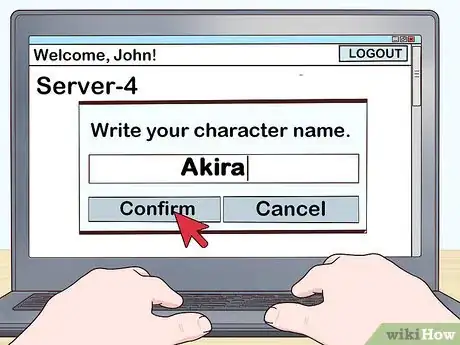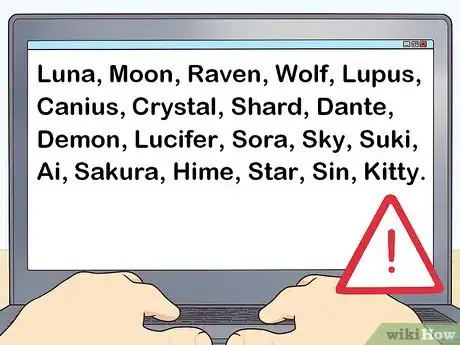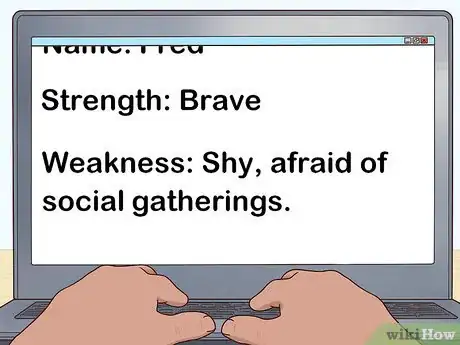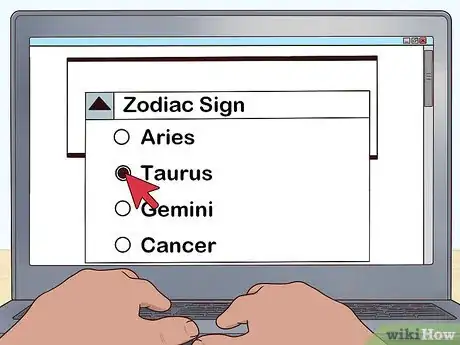This article was co-authored by wikiHow Staff. Our trained team of editors and researchers validate articles for accuracy and comprehensiveness. wikiHow's Content Management Team carefully monitors the work from our editorial staff to ensure that each article is backed by trusted research and meets our high quality standards.
This article has been viewed 96,134 times.
Learn more...
Creating a roleplay character should be a fun and enlightening experience. The choices you make for your roleplay character have everything to do with who you are and who you want to be. If you make the right choices for your roleplay character, the character will come “alive” in his or her early stages of development and begin to assume the identity you're making. The better you build your character, the more substantial and believable the character will be. It will become easier to add details and depth to the character because the character will be "real" to you. And if you make a character who is real to you, it's likely your character will be real to others engaged in roleplaying with you.
Steps
Choosing a Name
-
1Select a working name for your character. Choose a name that works in service of revealing the identity of your roleplaying character. Your roleplaying character's name should reflect some of your character's traits.
- Select a name based on what you know about your character. The name should help to build the identity of your character so that when you're roleplaying other players might think, Yes. He looks like a “Boris.”
-
2Consider your context when choosing a name. Select a name (as well as personality and backstory) specific to your roleplaying environment. Are you roleplaying at a convention? Are you roleplaying with friends? Are you roleplaying online?
- Online, you'll be typing the name so how it looks when spelled out is important.
- In person, the name will be spoken so sound is important.
Advertisement -
3Try for a name that “sounds” like your roleplaying character. A harsh-sounding name like Thor would be suitable for a tough, bold character. A funny, or bumbling character might be called Jethro. A graceful and elegant character might be called Grace. In each case the name works to show who your roleplaying character is.
-
4Associate your character's name with a known personality. Famous names have associations—character traits you think of when you think of the name. If your character is honest and upright, Abe might be associated with Abe Lincoln. A dynamic (and slightly raunchy) female character might be called Madonna.
-
5Make an accurate and realistic choice. Think about time period/place/status. A high class woman in Victorian London would not be named Haru Takahashi. A Japanese warlord would not be named James Walker.
-
6Add irony and humor to your character. Choose a name that's the direct opposite of your character's profile. Ebenezer for a character that's generous and spends lavishly would be an example. Grace for a klutzy character would also work.
-
7Be aware of nickname possibilities. Don't choose a name that can be turned into a nickname you don't like. Don't select a name that will rhyme with an unsavory word. You might end up with a nickname that's works against your roleplaying intentions.[1]
Building a Convincing Appearance
-
1Dress appropriately for your character. Consider the time/place you are making for your character. A princess in a medieval setting won't be running around in men's clothing (unless, of course, she is a runaway and this is important to her character!) Robocop would choose black over pink dress wear. He wouldn't wear tights. Robin Hood, on the other hand, would.
-
2Choose a hairstyle that reveals character. Slicked-back hair suggests a slick character. Messy hair, a laid-back and, perhaps, confused character. Hair that's arranged unusually or dyed pink or blue might suggest a character who has a flair for being original or off-beat.
-
3Select accessories which suggest a story or create a mysterious element to your character. Why does your vampire wear a chain around his neck? What's up with the lightning scar on the forehead of your roleplaying Voldemort character? These accessories ask a question that begs an answer. They make your character interesting.
-
4Select a gender that adds to the intrigue of your character. The obvious choice, of course, is to select your own gender for the gender of your roleplaying character. But roleplaying is about breaking boundaries. Why not try selecting the opposite gender for your roleplaying character? You might find an avenue into creating an inspiring and original character.
Creating a Personality
-
1Create a well-rounded personality for your character. Leave your character room to grow so that the character will continue to interest you and even surprise you. Characters shouldn't be predictable. They should be complicated, multi-dimensional, a bit mysterious.
- If your mage is the best in his academy, maybe he is incredibly bad at hand to hand fighting.
- Is your high school prom queen very pretty? Consider making her incredibly insecure, as well. No one is perfect. Make sure that your character is not.
-
2Know your character's backstory. The more you know about your character's backstory, the more solid the character will be. The more solid the character, the more generous the character will be in the personality he/she reveals to you and to others.
- Where did your character come from?
- What is your character's age?
- Does your character have a middle-class background? Upper class?
- Did your character's father come from a poor family and work his way up?[2]
-
3Formulate one sentence that can describe your character in a pinch. Who are they? Where did they come from? What happened to them to make them who they are?
- When you're forced to make a quick decision, this elevator pitch will quickly sum up the personality of your character so that you'll know what to do.[3] “I am Rollo from the planet Venus, forever mourning the loss of my magic ring.”
-
4List your character's strengths and weaknesses. Your roleplaying character shouldn't only be strong and charismatic. He/she should be believable.
- Is your character brave? Then perhaps your character could also be shy, afraid of social gatherings.
- Is your character talkative? Then allow your character to be drawn to the works of Mozart to suggest some depth and underlying layers.
-
5Know your character's beliefs. Was your character raised in a tough environment and taught to take care of her/himself? Then perhaps your character believes in survival of the fittest. If so, then your character might be power-hungry, aggressive, the loudest roleplaying character in the crowd.[4]
-
6Have fun! Roleplaying can be a near-art form, creative and inspiring. Cut loose and enjoy yourself! Make dynamic choices for your character so that you'll be interested in the role and will play it convincingly.
-
7Decide on their zodiac sign, an element. These can have an effect on their behavior.
Community Q&A
-
QuestionIf I get bored of my newly made character, should I follow the same steps again, or should I use a different strategy?
 Community AnswerIf you get bored of your character, these steps probably didn't help very much. I prefer to let an image or phrase pop into my head at random, and then ask myself: Who does this belong to? Then, I refresh myself with these steps as a kind of guideline for adding the finishing touches.
Community AnswerIf you get bored of your character, these steps probably didn't help very much. I prefer to let an image or phrase pop into my head at random, and then ask myself: Who does this belong to? Then, I refresh myself with these steps as a kind of guideline for adding the finishing touches. -
QuestionWhat if I constantly rewrite my character?
 Community AnswerThat’s totally fine! That shows you really care and want them to be the best and most original character possible. Feel free to revise as needed.
Community AnswerThat’s totally fine! That shows you really care and want them to be the best and most original character possible. Feel free to revise as needed. -
QuestionWhat about an animal character?
 Community AnswerI actually do this all the time! It works almost the same, but instead of clothes and hair styles, they have pelt colors and fur length. Make sure that the backstory and such makes sense with what animal it is. Like if you have a wolf character, it probably wouldn't have been a pet.
Community AnswerI actually do this all the time! It works almost the same, but instead of clothes and hair styles, they have pelt colors and fur length. Make sure that the backstory and such makes sense with what animal it is. Like if you have a wolf character, it probably wouldn't have been a pet.











































































